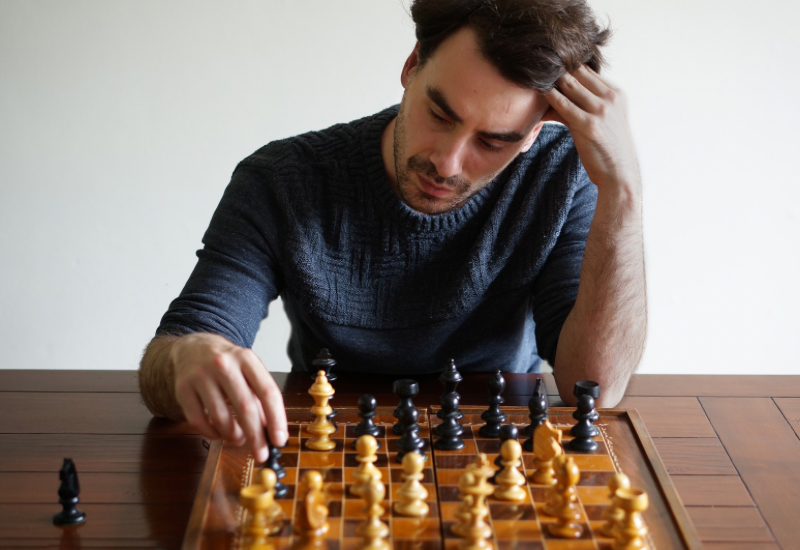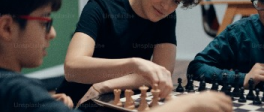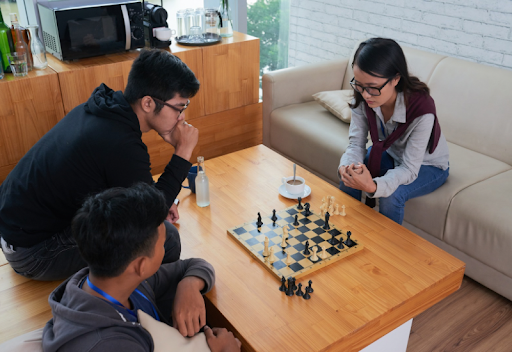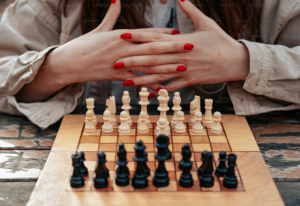Preparing for a chess tournament is more than just playing games. It involves strategic preparation, mental toughness, and physical readiness. Whether you’re a beginner or an experienced player, following the right steps will give you the competitive edge you need.
1. Picking the Right Chess Tournament for You
- Align the Tournament with Your Skill Level: Selecting a tournament that suits your current level is the first step. If you’re a beginner, opt for smaller, lower-rated tournaments. As you gain experience, gradually challenge yourself with open events to expose yourself to stronger opponents and more competitive play.
- Explore Different Formats for Growth: Tournaments come in various formats—rapid, blitz, and classical. Each requires a unique approach. If you’re new to competitive chess, start with a format you’re comfortable with, then branch out to others for a well-rounded experience.
Looking to refine your skills and tackle new formats? The Caissa School of Chess is the perfect place to get personalized coaching that prepares you for different tournament styles and helps you advance confidently in your chess journey.
2. Building a Solid Foundation: Chess Fundamentals
- Master Key Openings and Endgame Techniques: To compete effectively, you must be comfortable with your opening repertoire and capable of converting endgame advantages. Learn a few key openings inside and out, and don’t neglect your endgame training, as it can often be the decider in longer games.
- Blend Online Practice with Over-the-Board Play: Both online and over-the-board practice are essential for success. Online games help you quickly sharpen tactics, while physical practice prepares you for the slower, more deliberate pace of tournament play.
3. Crafting Your Middlegame Strategy
- Train Your Tactical Skills with Puzzles: Middlegame tactics often determine whether a game is won or lost. Spend time daily solving chess puzzles to improve your tactical awareness and ability to spot combinations. This will enhance your ability to exploit opportunities when they arise.
- Learn from the Masters: There’s no better way to improve your middlegame than studying games played by grandmasters. Watch YouTube tutorials or read annotated games to understand how they handle complex middlegame positions.
4. Fine-Tuning Your Chess Training

- Solve Puzzles Daily to Enhance Problem-Solving Skills: Daily puzzle-solving sharpens your calculation and problem-solving abilities. By regularly tackling puzzles, you’ll improve your ability to think several moves ahead and identify the best course of action during a game.
- Build Your Visualization Skills: The ability to visualize moves is critical for chess success. Try playing blindfold chess or mentally walking through sequences without a board. These exercises improve your calculation and help you think deeper into the position.
- Keep Your Opening Repertoire Sharp: It’s essential to regularly review your opening systems. Stick to a core set of openings that you’re comfortable with and refine them over time. Avoid learning too many new lines before a tournament—focus on what you know works for you.
Looking for expert guidance to fine-tune your training? GM Vishnu, the ex-coach of chess prodigy Gukesh, is starting a new training batch in the next 2-3 days. Don’t miss the chance to enroll before the slots fill up! Secure your spot for world-class coaching that will take your game to the next level.
5. Preparing Your Mind for the Tournament
- Foster a Positive, Focused Mindset: Mental preparation is just as important as tactics. Develop a positive mindset by reminding yourself that every game is an opportunity to improve. Focus on the process, not just the result, and approach each game with confidence.
- Use Relaxation Techniques to Stay Calm: Managing stress is crucial in high-pressure tournaments. Practice deep breathing, meditation, or mindfulness exercises to keep calm and collected, especially when faced with challenging opponents.
- Stay Resilient in the Face of Setbacks: Tournament play comes with ups and downs. Prepare yourself to bounce back from tough losses by focusing on the lessons each game offers. A resilient mindset will help you stay positive throughout the event.
6. Staying Physically Fit for Long Games
- Maintain Physical Stamina: Chess may be a mental game, but physical stamina plays a crucial role in tournament success. Regular exercise helps you build endurance, keeping your mind sharp during long games. Activities like running or yoga can improve both focus and energy.
- Prioritize Rest and Nutrition: Adequate sleep is essential for peak mental performance. In the days leading up to the tournament, prioritize rest and maintain a healthy diet rich in brain-boosting foods. Staying hydrated and avoiding junk food will help keep your mind alert and focused during the competition.
7. Last-Minute Preparation: The Final Countdown
- Ease Off on Training Right Before the Event: In the days before the tournament, reduce the intensity of your training. Focus on reviewing your opening repertoire, solving simple puzzles, and keeping your mind fresh. Don’t overwhelm yourself with new material.
- Stay Relaxed and Confident: The final hours before the tournament are for relaxation, not cramming. Take a break from chess, engage in light physical activities, and ensure you’re well-rested. A clear and confident mind is your best tool when the tournament begins.
Looking for last-minute guidance from the best? The world’s top grandmasters teach at the Caissa School of Chess, and students are raving about the experience. Explore the resources offered by the school and see for yourself before choosing the right coach to help you ace your next tournament.
Wrapping Up: Your Roadmap to Tournament Success
By following these essential steps, you’ll be well-prepared to tackle any chess tournament that comes your way. From picking the right event to mastering tactics and mental preparation, success is all about balance. Stick to your plan, stay positive, and remember that every game is an opportunity to grow.
Ready to put these strategies into action? Which preparation step will you focus on first for your next tournament? Let’s discuss!








